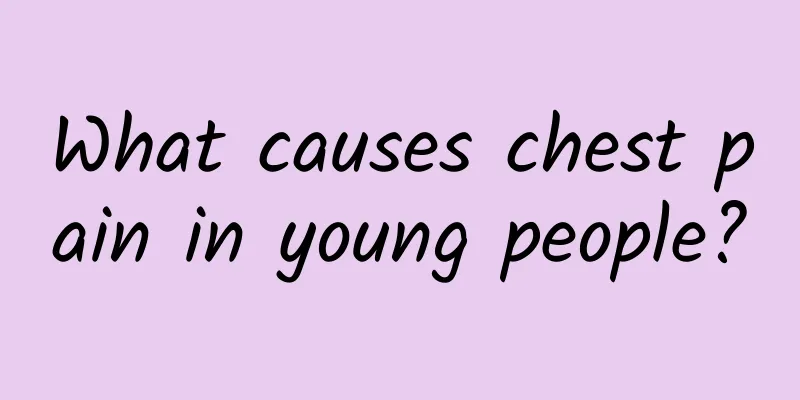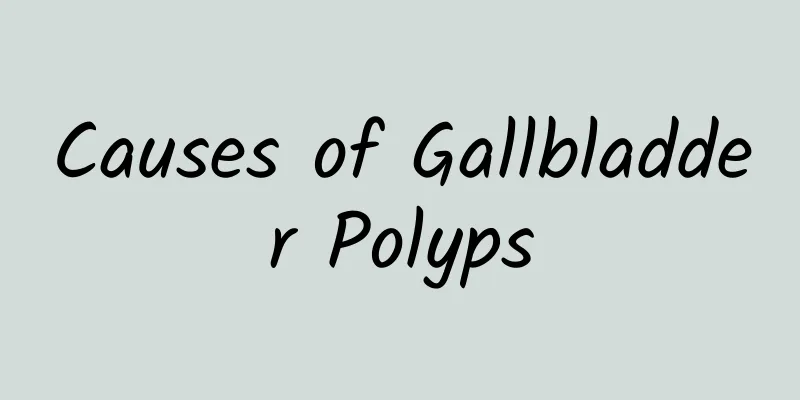What causes chest pain in young people?

|
The main cause of chest pain in young people is some bad habits in life, personal body functions, and organ function diseases. For example, various problems with the pleura and liver can cause chest pain in patients. In addition, it is not ruled out that the chest pain is caused by recent bad mood and long-term sulking. Chest tightness is a subjective feeling of difficulty breathing or not having enough air. Those with mild symptoms will feel nothing serious, but those with severe symptoms will feel uncomfortable, as if a stone is pressing on their chest, and even have difficulty breathing. It may be a functional manifestation of the body's organs, or it may be one of the earliest symptoms of disease in the human body. The causes of chest tightness in people of different ages are different, the treatments are different, and the consequences are also different. 1. Functional chest tightness (i.e. chest tightness without organic disease): Staying in a room with closed doors and windows and poor air circulation for a long time, or encountering some unpleasant things, or even having quarrels or disputes with others, or being in a climate with low air pressure, often causes feelings of chest tightness and fatigue. After a short rest, opening windows for ventilation or going outside to breathe fresh air, relaxing your mind and regulating your emotions, you will soon return to normal. This type of chest tightness can be said to be functional chest tightness, and there is no need to worry or seek treatment. In daily diagnosis and treatment of patients, we often encounter some patients who complain of chest tightness, palpitations, and chest pain. They think they have "heart disease" and come to the hospital for treatment with great concern. However, most patients were examined and found to have normal results by X-ray, electrocardiogram and echocardiogram. This is not an organic heart disease, but a functional cardiac neurosis (i.e. cardiac autonomic dysfunction) with cardiovascular symptoms as the main feature. Why does the heart have neurosis? Due to the influence of anxiety, tension, emotional excitement, mental trauma and other factors, the central excitation and inhibition processes are disturbed, and the cardiovascular system regulated by the autonomic nervous system also becomes disordered, causing a series of symptoms of excessive sympathetic nerve tension. In addition, excessive fatigue, too little physical activity, and lack of proper exercise of the circulatory system result in the inability to adapt to the slightest activity or fatigue, thus producing excessive cardiovascular response and causing this disease. Cardiac neurosis is a type of systemic neurosis (i.e. the manifestation of autonomic dysfunction in the cardiovascular system). Its symptoms are varied. The most common subjective symptoms are palpitations, dyspnea, precordial pain and general fatigue. There are also manifestations such as irritability, insomnia, sweating, trembling, dizziness and nightmares. |
<<: Symmetrical pain in left chest and left back
>>: I woke up with pain in the middle of my chest
Recommend
Why is my neck stiff and tight?
The neck is currently the part of the body most p...
Snake Gallbladder Stewed with Fritillaria
Snake gall and Fritillaria cirrhosa are things th...
What are the Chinese patent medicines for removing moisture from the body?
Dampness exists in every corner of the world, it ...
What is the reason for less armpit hair?
Why do we have less armpit hair? Many people may ...
What are the functions of human albumin?
Human albumin is actually an injectable drug. Its...
White vinegar and honey whitening method, white vinegar honey whitening secret
Honey and white vinegar are both common things in...
Three diuretic Chinese medicines
There are many kinds of diuretic herbs. The three...
Can I eat nuts during confinement?
Nuts are a type of food that has many benefits to...
The efficacy of Platycladus orientalis leaves as pillows
Using cypress leaves to make pillow cores is a ve...
Side effects of Eclipta prostrata
Houttuynia cordata is a very common Chinese medic...
Leeches for treating cerebral thrombosis
Leeches have anticoagulant and antithrombotic eff...
Rhomboid muscle strain
Many people have suffered from or are experiencin...
How to perform surgical treatment for femoral head fracture?
The femoral head is the bone that connects the pe...
How long does it take for ovulation to occur after leucorrhea
In daily life, female friends should find some ab...
The efficacy and function of glutinous rice vine root
The root of glutinous rice vine is a relatively r...









